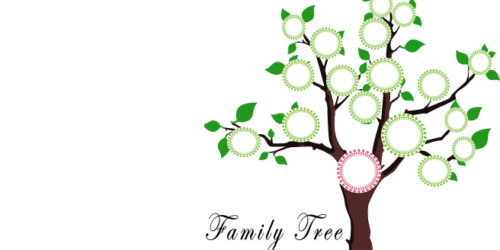How to Analyze Genealogical Sources: Part Four
Editor’s Note: This article by James Tanner originally appeared in the Genealogy’s Star blog site and is used with the author’s permission.

Courtroom in the Charles E. Simons Jr. Federal Court House, named for District Court Judge Charles Earl Simons Jr. in 1986, located in Aiken, South Carolina
Jargon is defined as the use of special words or expressions that are used by a particular profession or group and are difficult for others to understand. Some jargon, such as that used by lawyers and doctors is almost impenetrable without formal training. Genealogists have their own form of jargon that is only moderately difficult to learn. However, over the years, primarily because of a few attorneys who were also genealogists, some legal jargon has found its way into the genealogical community. Unfortunately, this borrowed jargon deals primarily with the analysis of records and documents. Here is a sample of some of the borrowed terms.
- evidence
- facts
- burden of proof
- beyond a reasonable doubt
- proof
- clear and convincing evidence
- a preponderance of the evidence
As is the case with most jargon, some of these terms have become so common the fact that they are derived from the legal profession has been lost. The concept of “proof” implies that there is a judge who will decide if your argument is true or false. However, there are no genealogical judges whose decision is binding on the genealogical community no matter how much we wish there were such a person. The idea of proof also assumes that there are people who need to be convinced that you have the “truth” or “true facts” and that someone else’s version is not true (false).
In a court of law, all legal actions are adversarial. There are always at least two versions of the facts. But in the absence of a judge and/or jury, the only person that needs to be persuaded is the individual researcher. As you investigate your ancestry, you are the only person that needs to be convinced of the truth or falsity of the “evidence.”
It seems to be convenient to speak of the information in historical (genealogically significant) documents as “evidence” or “facts” For many years, genealogical research has been compared to detective work. Researchers and detectives share some methodologies but ultimately the goals of the two pursuits are fundamentally different. The whole idea that genealogical research involves discovering evidence and then proving a case ignores the main issue with historical documents: they are never conclusive. This means that when you are doing genealogical research the next document you find may entirely contradict everything you have concluded to that point in your investigations. All you can legitimately claim is that you have formed an opinion based on the information you have seen up to the time you formed your opinion. If you are a lawyer (attorney) you discover the evidence supporting your client’s claims and then you put your conclusions (arguments) in a legal brief. Some genealogists follow this pattern and create a “proof statement” setting forth the “facts” and showing how those “facts” support the conclusion or prove the conclusion.
The fact that you call your opinion a “proof” does not change or enhance its veracity. Let’s suppose that you are looking for the birth date of an ancestor. Let’s further suppose that you find several documents that give different birth dates. You look at all the documents and conclude that one date is more likely than any of the others. You then write up your conclusion following some formal methodology (just like writing a legal brief). Is your conclusion correct? Does writing up your conclusion in a formal manner make it more correct? I was a trial attorney for 39 years and participated in thousands of legal disputes. It would have been really convenient for me if when I wrote my “legal brief” (motion for summary judgment or trial brief) and expressed my opinion that someone would have concluded, Hey, this legal brief is perfectly written therefore it must be correct. What would be missing? An adversary writing his or her brief contradicting everything I said and pointing out why I was wrong. Oh, but you say, this happens in the genealogical community also. Yes, very occasionally but who ultimately decides who is right and who is wrong? No one. As I already wrote above: there are no genealogical judges.
Now, what does this mean to those of us that need to analyze genealogical documents and records? It means that we need to be willing to listen to what others say or write about our family. If we are convinced we are right and the rest of the world is wrong, we need to have a large measure of humility and accept the fact that almost anything we conclude may change with the next DNA test or the next document.
If you want your opinion to be given any credence, I suggest you may want to learn enough to be cogent and persuasive. If you get in an argument over some ancestor or another, you just might want to back off and re-assess all of the information you have. If you are basing your conclusions on a single document, you are walking on thin ice and may find that your conclusions are not correct. What is even more, if you are basing your opinion on research done by your grandmother or aunt or whomever, I suggest you may want to refrain from making any opinions at all until you have personally verified that the information you inherited is correct.
Stay tuned for more.
For the previous parts of this series see the following:
Part One: https://genealogysstar.blogspot.com/2020/04/how-to-analyze-genealogical-sources.html
Part Two: https://genealogysstar.blogspot.com/2020/04/how-to-analyze-genealogical-sources_17.html
Part Three: https://genealogysstar.blogspot.com/2020/04/how-to-analyze-genealogical-sources_20.html





